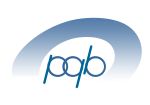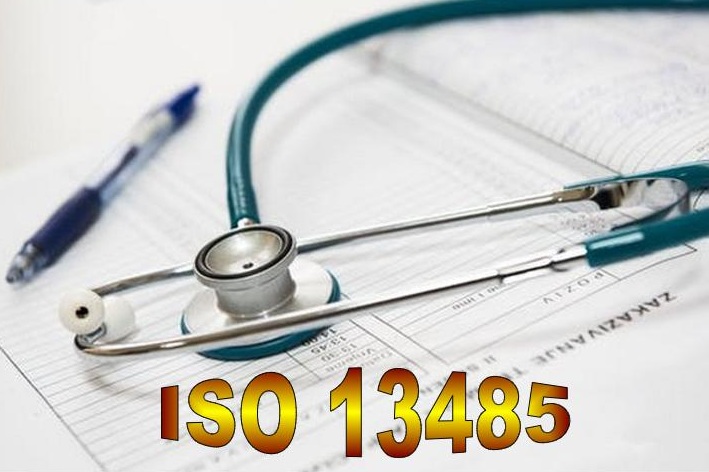T 82v16 - E-Learning - ISO 13485 training package - Readiness and internal audit of your medical devices quality management system QMS version 2016
E-Learning (online courses) - Implementation, maintenance, improvement and internal audit of your medical devices ISO 13485 quality management system version 2016. You save 75 euros on the second course and 56 euros on provided documents!
Description
T 22v16 ONLINE TRAINING ISO 13485 readiness version 2016
Discover the ISO 13485 standard and
- its contents
- its principles
- its requirements
- its stakes
Get used to
- process approach
- medical device terminology
- medical device documents
- ISO 13485 readiness documentation
- ISO 13485 internal audit documentation
- risk-based thinking
- improvement
- feedback
The important and fundamental elements of a medical device quality management system
- quality approach (quality management principles, PDCA cycle)
- standards and specifications
- process approach (definitions, process types, mapping)
- applicable regulatory requirements
- management review
- risks and opportunities
- resources, communication, documents
- production and service provision
- performance evaluation
- improvement
The menu of the course
- Presentation
- MCT (multiple-choice test) Beginning (10 questions)
- 1 Quality approach
- 1.1 Background and references
- 1.2 Scope
- 2 Principles and steps
- MCT Quality approach (8 questions)
- 3 Process approach
- 3.1 Definitions
- 3.2 Processes
- 3.2.1 Management process
- 3.2.2 Realization process
- 3.2.3 Support process
- 3.3 Process mapping
- 3.4 Process approach
- MCT Process approach (6 questions)
- 4 QMS
- 4.1 General
- 4.2 Documentation
- Case Interested parties
- MCT QMS (9 questions)
- 5 Management responsibility
- 5.1 Management commitment
- 5.2 Customer focus
- 5.3 Quality policy
- 5.4Planning
- 5.5 Responsibility
- 5.6 Management review
- 6 Resource management
- 6.1 Provision of resources
- 6.2 Personnel
- 6.3 Infrastructure
- 6.4 Work environment
- Case Customer & need
- Case Clean room
- Case Management review
- MCT Management responsibility (8 questions)
- 7 a Product realization
- 7.1 Planning
- 7.2 Customers
- 7.3 Design and development
- MCT Planning (8 questions)
- 7 b Product realization
- 7.4 Purchasing
- 7.5 roduction
- 7.6 Monitoring and measuring equipment
- Case Process stability
- Case Selecting suppliers
- Case New line
- MCT Purchasing and production (8 questions)
- 8 Improvement
- 8.1 General
- 8.2 Monitoring and measurement
- 8.3 Nonconforming product
- 8.4 Analysis of data
- 8.5 Improvement
- Case Nonconformities
- Case Audit programme
- Case Kaizen & problem
- MCT Improvement (9 questions)
- MCT End (20 questions)
T 42v16 ONLINE TRAINING ISO 13485 internal audit version 2016
The important and fundamental elements of an internal audit
- scope
- normative references
- principles
- audit programme (responsibilities, records)
- audit conducting (objectives, evidence, conclusions)
- auditor competences (knowledge, training)
The menu of the course
- Presentation
- MCT (multiple-choice test) Beginning (10 questions)
- 1 Scope
- 2 Normative references
- 3 Definitions
- 4 Principles
- 4.1 Management principles
- 4.2 Audit principles
- 4.3 QMS performance
- MCT Internal audit (6 questions)
- 5 Audit programme
- 5.1 General
- 5.2 Objectives
- 5.3 Establishing
- 5.4 Implementing
- 5.5 Monitoring
- 5.6 Reviewing and improving
- Case Audit programme
- MCT Audit programme (11 questions)
- 6a Audit preparation
- 6.1 General
- 6.2 Initiating
- 6.2.1 First contact
- 6.2.2 Situations and feasibility
- 6.3 Preparing the audit
- 6.3.1 Document review
- 6.3.2 Audit plan
- Case Audit readiness
- MCT Audit preparation (9 questions)
- 6b Performing an audit
- 6.4 Audit activities
- 6.4.1 Opening meeting
- 6.4.2 Audit evidence
- 6.4.3 Audit conclusions
- 6.5 Audit report
- 6.6 Completing the audit
- 6.7 Audit follow-up
- 6.4 Audit activities
- Case Audit report
- Case Management review
- MCT Performing an audit (8 questions)
- 7 Competence and evaluation of auditors
- 7.1 General
- 7.2 Auditor competence
- 7.3 Evaluation criteria
- 7.4 Evaluation methods
- 7.5 Auditor evaluation
- 7.6 Improving the competence
- Case Auditor question
- MCT Auditor competences (8 questions)
- MCT End (20 questions)




